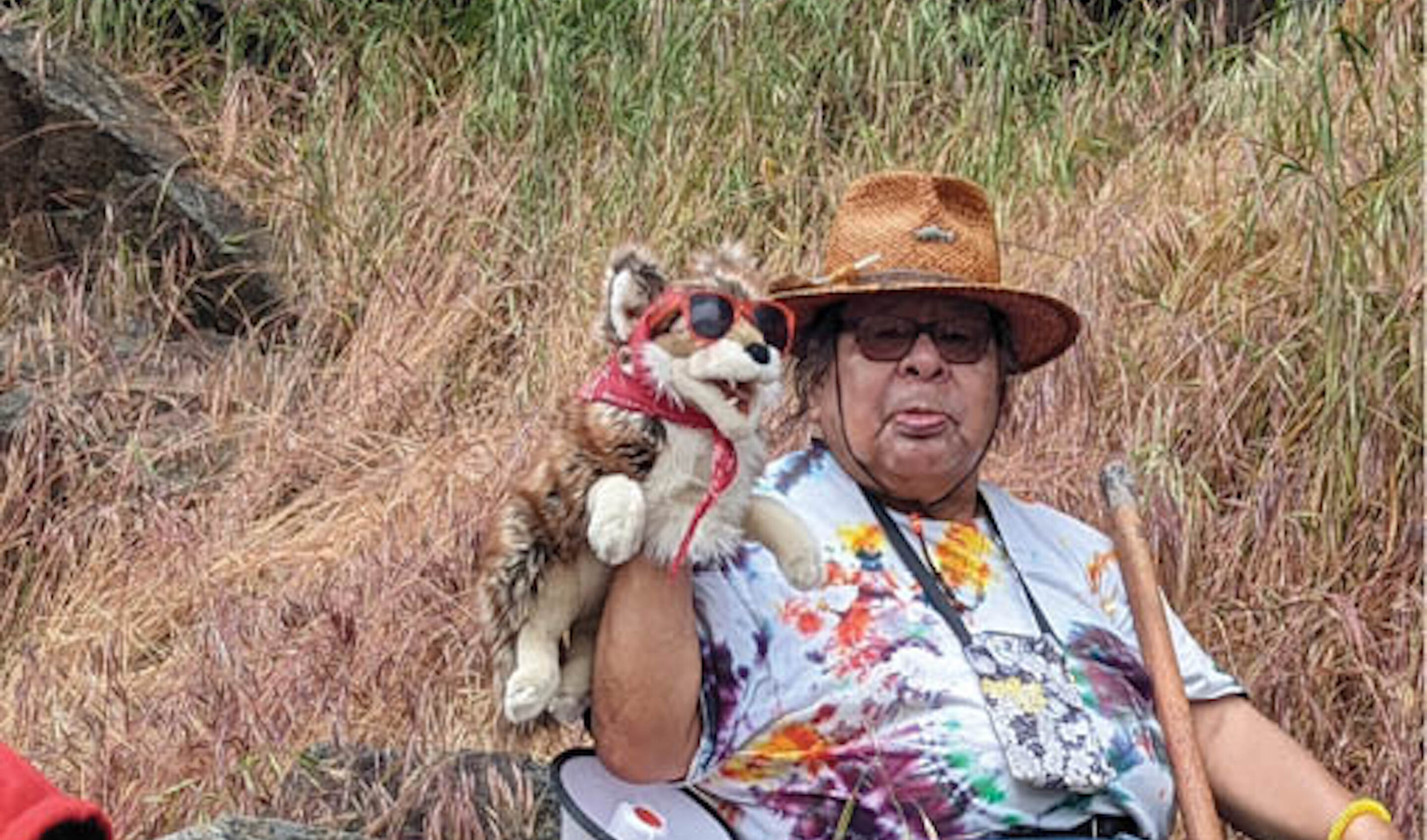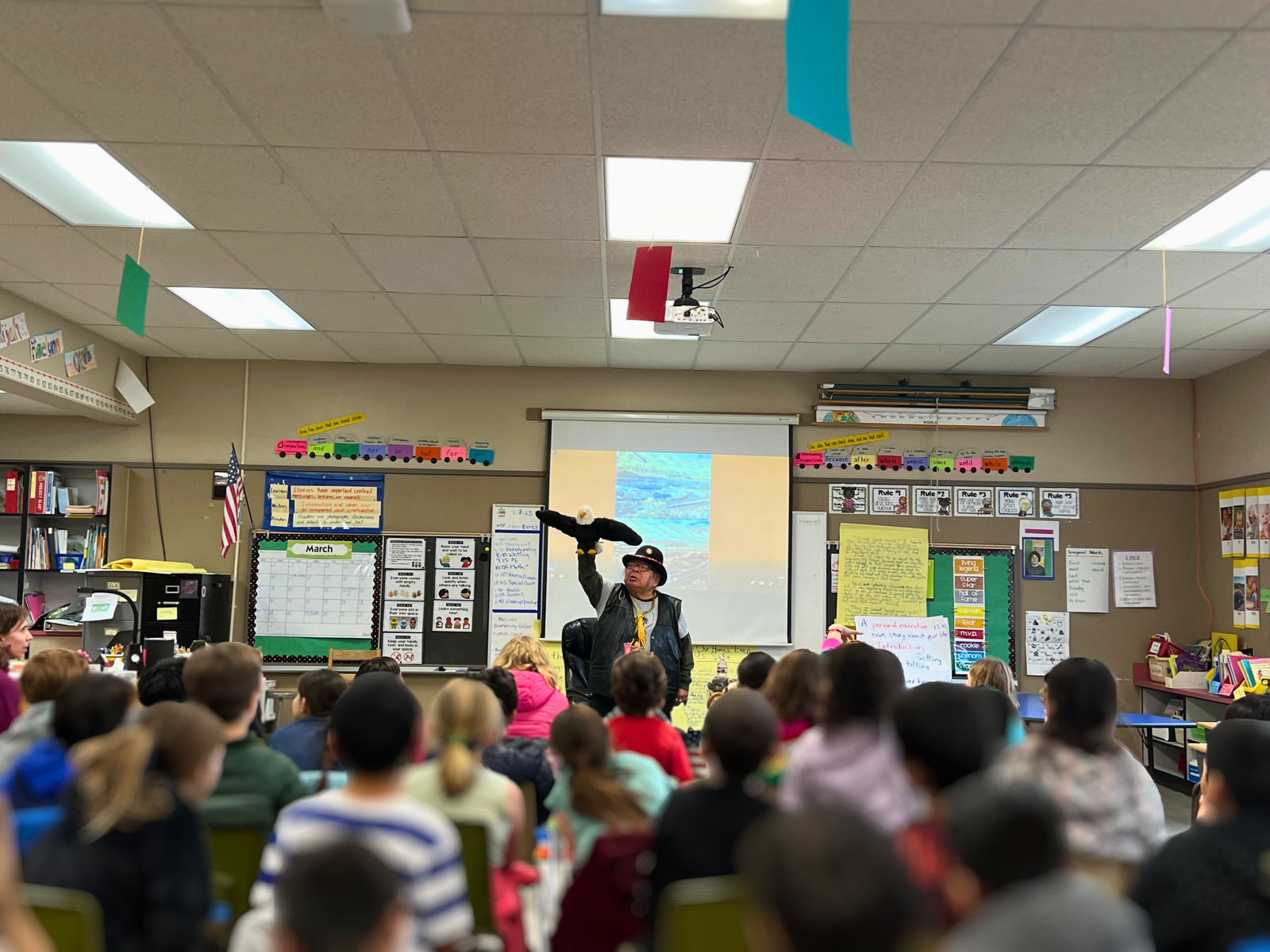During the winter, I listened to my father telling me Native legends to put me to sleep. He told the legends over and over again. I was covered up with many quilts made by long hands by Mom, Aunty, and Grandma. There would be the crackling of the fire in the wood stove while the winter wind blew outside. I was safe and secure.
I was raised at Celilo Falls, Oregon. During the winter, we learned life skills to help the village survive; how to make stone tools, flint arrowheads, and spear tips for hunting animals. The children would also listen to legends, which would explain to them how to act in the world. Some of the lessons in life would be—don’t be greedy, don’t take more than you need, help those, who are younger and smaller than you, and respect your elders.
Many of these legends used a “trickster” figure. In this area, our trickster is the “Old-man-coyote.” He is always hungry, wants more than he needs, and acts outrageously to show children how not to act. When we would go to town to go shopping, and I would misbehave, my Grandma would say quietly, “quit acting like Coyote.” and I knew that I was not acting right. Grandma would not shout at me. The role of trickster is a universal figure in most tribal legends and is important in the teachings of storytelling.
In 1973, some of us Indians were going out to speak to students on how we were raised, being different, being raised poor, and facing prejudice. We were at the old Gresham Union High School building, and we had time left over. We didn’t know what to say, “Do you know a story?” one of the speakers asked me. “Yes,” I replied, and then got up and repeated one of the legends father had told me. After we got back to the office, another man asked me, “Do you know more stories?” “Yes,” was my reply.
I’ve always been interested in live theater since I was in high school and was a Three Star Thespian and worked for a teacher from the Jefferson Performing Arts Program. I wrote her a simple script, and she liked the script. Then she asked me if I had heard about the Artist-In-The-Schools Program. I had not. The program was hiring at that time. I got letters of recommendation from William Stafford, the Poet Laureate of Oregon, Vine Deloria, Jr. who wrote Custer Died for Your Sins, and Ken Kesey, who wrote One Flew Over the Cuckoo’s Nest. I got hired teaching 20 hours per week K-12 for over 10 years.
Now I work for Confluence and other organizations, telling legends in classrooms in person and on Zoom. I use puppets to tell my legends; I use “Aunty Coyote” to explain the background of storytelling. She has a red bandana on, with red sunglasses. Plus, she likes to go to McDonald’s for her “Happy Meal.”
The following is from The Positive Indian Notebook, I wrote for the Northwest Indian Welfare Association in 1984 at Portland State University.
“The storyteller was a man or woman, who was well respected in the tribe. Sometimes they were parents or grandparents. The storyteller had to know the legends, and history of the tribe and had be involved in tribal politics and religious ceremonies, and be an excellent child psychologist. The storyteller had to learn to work with groups and be able to sense the needs of the audience. They could read children by just observing them.
There is a dichotomy in the modern world of storytelling and in the modern electronic entertainment. Please refer to the list below:
STORYTELLING MODERN ELECTRONIC ENTERTAINMENT
Human contact Risk taking Push button: No risk
Storyteller has control Recipient has control
Storyteller is respected Listening device =$
Unlimited imagery Prepackaged imagery
Many situations Win/Lose situation
Delayed gratification “I want it now” attitude
Storytelling is essential for the proper growth and development of well-rounded human beings who can laugh at life’s problems, laugh at themselves, and learn how to overcome problems that come with living. Storytelling is a non-threatening tool used for teaching children of all ages and all races. Children need to have the learning experience be a joyful, challenging event, and storytelling offers that.


